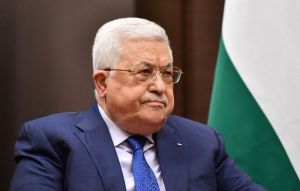The continued practice of war crimes against Palestinians
On the 3rd of July 2023, the Israeli Defense Forces (IDF) launched a large-scale attack on Jenin. This attack is the largest of its kind since 2002, the time of the Second Palestinian Intifada. The attacks took place in Jenin, a city in the occupied Palestinian territories under the control of the Palestinian Authority. The city hosts one of the largest refugee camps in the country, yet it has been the target of many of Israel’s aerial attacks. It is home to approximately 24,000 registered refugees making it one of the most densely populated areas in the World. The attacks killed 12 people, left at least 140 injured, damaged infrastructure and homes, and displaced more than 3000 Palestinians. Witnesses and human rights organizations have highlighted that Israel has also prevented the entry of ambulances and medical aid to the camp in what constitutes a war crime.

These attacks follow the usual Israeli attacks modus operandi of the disproportionate use of force. The proportionate use of force is a key legal principle in international law which ensures that retaliatory use of force must be proportional to that of the perpetrators which is difficult as the Palestinians don’t amass the military capabilities to create such attacks as Israel. The attacks are not the only time where Israel has conducted war crimes. In fact, the system in which Israel governs Palestinian territory is considered a practice of apartheid which according to the Geneva Conventions is a war crime. Therefore, both the system and the attacks are unlawful which as of recently have become more frequent. It comes in line with the aims of the current Israeli government led by the longest-serving Prime Minister Benjamin Netanyahu who has vowed to repeat such acts if necessary.
Netanyahu’s far-right and hawkish politics
Netanyahu who has served as prime minister in 5 different terms lost his seat as Prime minister in 2021 as different political parties from across the political spectrum formed a coalition in order to oust Netanyahu from office. However, the coalition was short-lived and the breakdown of it led to the 2022 elections which saw Netanyahu come back to power, nonetheless, with the most right-wing coalition in recent decades meaning that the government now boasts a higher degree of anti-Palestinian sentiment hence, the increasingly draconian attacks against the Palestinians and the rapid expansion of Israeli settlements in the occupied West Bank as they usually appeal to Israeli right-wing voters. This attack comes at a controversial time in Israeli politics, where Netanyahu’s attempts at limiting the power and independence of the Judiciary have polarized the Israeli public. Therefore, it is essential for Netanyahu to appease more of his voters and right-wing politicians. However, this further divides the Israeli populace because many of the opposition groups and their voters have criticized Netanyahu’s approach to the issue which means that Netanyahu’s running a fine line in Israeli domestic politics and further polarizing it. Nonetheless, the Israeli government tried to justify the attacks by stating “that the attacks are targeting extremist and terrorist hotspots”. However, targeting refugee camps and densely populated areas is only a continuation of Israel’s patterns of terrorizing Palestinians in the West Bank and Gaza which the office of the High Commissioner on Human Rights highlighted as a false assumption that the Palestinian people in the West Bank can be seen as a collective security threat and that all human rights apply to the Palestinians in the West Bank. Recent footage showcases the killing of a 16-year-old unarmed civilian debunking Israel’s alleged claims that only combatants were killed.
The severity of the attacks was widely echoed across the international community and drew quick condemnation from various Organizations such as the League of Arab States and many other Organizations and Countries. The European Union envoy’s visit to Jenin criticized Israel’s lack of proportionality in the use of force and described the operation as a breach of international law. The United Nations Secretary General also issued a rare condemnation of Israel’s excessive use of force. The Israeli delegation to the United Nations requested the retraction of the statement, however, the United Nations refused. The United Nations Relief and Works Agency for Palestine refugees in the Near East (UNRWA) Deputy Commissioner Leni Stenseth highlighted during his visit “that the damage he witnessed was shocking; the attacks destroyed homes, roads and the UNRWA health centre alongside the trauma that the people had witnessed.” On the other hand, some countries were more reluctant in the condemnation of the attacks and most prominently the White House stated: “that it recognized Israel’s right to defend its people, nonetheless, it calls for the necessary measures to prevent the loss of civilian life.” This support to the Israeli government from the United States of America came at a time when both countries have had multiple disagreements in recent months, however, this did not change the United States’ attitude towards Israel and their unlawful military operations in the West Bank. Multiple mediation efforts have been resorted to in the past. Egyptian mediation efforts are usually critical in stopping attacks on Palestinian cities, brokering at least 3 different ceasefires and deals in recent years. However, only in May did Egypt broker a truce to stop the Israeli strikes on Gaza that killed 33 people.
What does that mean for the Palestinian politics?
The Jenin attacks angered Palestinians against their usual enemy, the Israeli government, however, what brought greater dismay is the incapability of the Palestinian Authority to prevent repeated Israeli aggression. Therefore, the Palestinian Authority now is at a critical point in its 29-year history given its’ recognized mandate in the Gaza-Jericho agreement between the Palestinian Liberation Organization and Israel. The mandated role of the Palestinian Authority is to manage internal security and civil affairs. However, the latest attacks on the Palestinian Territories in the West Bank highlighted the failure of the authority and its long-time president Mahmoud Abbas in addressing the issue of internal security as Israel can conduct military operations whenever it deems necessary. Thereby reigniting calls for the resignation of Mahmoud Abbas and the possible collapse of the Palestinian Authority as a whole. Only recently did the Security headquarters of the Palestinian Authority in Ramallah got attacked and the Authority’s security forces opened tear gas on the protesters. Another sign of dismay was the incident where two Palestinian Authority officials were chased out of the funeral of those who were killed in the Jenin attacks. Recent polling shows that 57% of the Palestinian population in the West Bank believe that the Palestinian Authority’s survival is in Israel’s interest and 52% of people believe that the collapse of the Palestinian Authority will be of benefit to the Palestinian people. This suggests that the Palestinian Authority, which was once hailed for its efforts to eventually establish a modern Palestinian state has lost drastic support over the years. The collapse of the Palestinian Authority could have a detrimental impact on the future relations of Palestine vis-a-vis the West as Abbas’s government has been able to receive foreign aid from many Western countries as a result of his moderate politics in regard to Israel and his efforts to curb armed resistance. However, the rise of far-right politics in Israel has led to increased calls for decreased political cooperation between the Palestinian Authority and the Government of Israel despite that Netanyahu and his government voted in favor of preventing the collapse of the Palestinian Authority. This highlights the fine line that the Palestinian Authority is currently walking in balancing Israel’s accusations of Collaboration with militant groups and the consequent freezing of tax revenues that the Israeli government collects on behalf of the Palestinian Authority, which they usually deduct a large portion of the money under accusations of collaboration with militant groups. On the other hand, the Israeli government is actively trying to save the Palestinian Authority from collapsing, however, with the guarantee of concessions from the authority in the political criticism of Israel. This highlights Israel’s attempts at using the Palestinian Authority as a tool for furthering its public image internationally as a peacemaking state while indirectly controlling the Palestinian Population in the West Bank, therefore, decreasing the political and economic cost of its operations. Israel’s move to try and save the Palestinian Authority from collapsing suggests Israel’s acknowledgement of the repercussions if they leave it to collapse because it will create a power vacuum that has already become evident over time and that can give way for more armed resistance by the Palestinians against Israel which will destroy its political stability. One possible scenario for the future of Palestinian politics after the collapse of the Palestinian Authority is that Hamas or Islamic Jihad can mobilize the people after the power vacuum that will happen and spread its control over the West Bank. The demise of the Palestinian Authority could also give rise to some of the minor armed groups such as the Jenin Battalion that have gained popularity in recent years in the struggle of the Palestinian Authority to confront repeated Israeli aggression. On Abbas’s last visit to Jenin after the attacks, protestors were chanting battalion in reference to the Jenin Battalion showing signs of great distrust in his leadership. The collapse of the Authority can also trigger a state of anarchy within the Palestinian population as Palestinian Politicians have attempted to create a sovereign Palestinian state for decades and failed, meaning that the population could lose hope in mediation between Israeli and Palestinian Politicians, therefore, relying on personal efforts to pressure Israel especially that 74% no longer believe that a two state solution is feasible.

